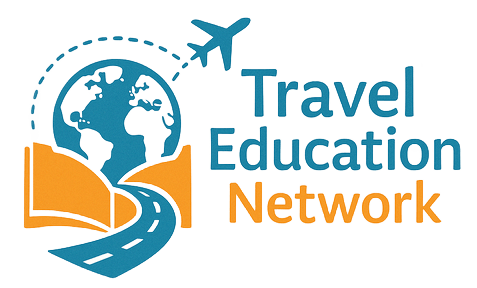Is Studying Abroad Worth It? Pros, Cons, and Long-Term Benefits
Dreaming of a global adventure? Discover the life-changing benefits of studying abroad! From boosting your career with enhanced adaptability and a standout resume, to gaining invaluable cultural understanding and personal growth, the advantages are immense. Explore the pros and cons, learn how to plan your experience, and weigh the financial aspects. This guide provides the essential steps to decide if studying abroad is the right path for you. Start your journey today!
Important information

- Studying abroad boosts career prospects by enhancing your resume and making you more competitive through increased adaptability and leadership skills.
- It fosters personal growth by broadening perspectives, increasing independence, and offering opportunities for language acquisition and cultural immersion.
- Potential challenges include homesickness, financial burden, culture shock, and language barriers. Careful financial planning and emotional preparation are crucial.
- Choosing the right program involves aligning it with your academic and career goals, considering program structure and flexibility, and exploring internship/volunteer opportunities.
- Long-term benefits include improved career prospects, a valuable international network, and enhanced personal development like increased adaptability and independence.
Is Studying Abroad Worth It? Evaluating the Pros and Cons
Advantages of Studying Abroad
Embarking on a study abroad program offers significant personal and academic benefits. experiencing a new culture firsthand fosters independence, adaptability, and a broader global understanding. daily interaction significantly accelerates language acquisition, enriching your communication skills. studying abroad also presents opportunities for profound personal growth, pushing you beyond your comfort zone and expanding your horizons.
Disadvantages of Studying Abroad
While studying abroad offers numerous advantages, it’s essential to consider potential drawbacks. homesickness can be a significant challenge, as you’ll be away from your familiar support network of family and friends. the financial burden, including tuition, travel, and living expenses, can be substantial. adapting to new customs and social norms requires time and effort, and cultural differences may present unexpected hurdles.
Step 1: Reflect on Your Goals.
Carefully consider your academic and personal objectives. Determine how studying abroad aligns with your aspirations and how it can contribute to your overall development.
Step 2: Evaluate Your Finances.
Assess your financial resources and determine if you can realistically afford the program costs, including tuition, travel, accommodation, and living expenses.
Step 3: Assess Your Adaptability.
Honestly evaluate your adaptability and comfort level with unfamiliar situations. Consider how well you cope with change and embrace new experiences.
Studying abroad can significantly boost your career prospects, enhancing your resume and making you a more competitive candidate. It contributes immensely to personal development, broadening your perspectives and fostering valuable life skills. However, potential hurdles such as credit transfer and cultural barriers can arise. Carefully weigh the pros and cons in light of your individual circumstances and priorities to determine if studying abroad is the right choice for you.
Pros of Studying Abroad
Studying abroad offers a significant career edge by enhancing leadership and adaptability. Immersing yourself in new cultures and educational systems builds confidence and unlocks diverse job opportunities. It’s also a profoundly enriching personal experience, fostering growth and providing unique academic avenues. Students gain deeper cultural understanding through specialized courses often unavailable at home, allowing them to explore exciting new subjects in a relaxed learning environment. Forging friendships with people from diverse backgrounds opens doors to both personal and professional development. The chance to learn a new language through immersion is invaluable, as is the increased independence gained from managing life abroad while earning a degree. Exploring new places broadens perspectives and makes your resume truly stand out. Consider studying abroad to boost your career and personal growth.
Career Advantages
- Enhances leadership and adaptability.
- Builds confidence and unlocks diverse job opportunities.
- Provides a significant career edge, making your resume stand out.
Personal Growth
- Offers a profoundly enriching personal experience, fostering growth.
- Provides unique academic avenues and specialized courses.
- Fosters friendships with people from diverse backgrounds, opening doors to personal and professional development.
- Offers the chance to learn a new language through immersion and increased independence.
- Broadens perspectives through exploring new places.
Cons of Studying Abroad
Studying abroad presents challenges such as substantial costs and homesickness. Culture shock and language barriers can make daily tasks difficult. Navigating simple activities like grocery shopping or asking for directions can be surprisingly tricky. Some programs require extra coursework, potentially delaying graduation. Many students experience loneliness and miss the comforts of home. Balancing academic work with exploring a new country can also be tough. Despite these difficulties, studying abroad is often a rewarding experience.
Challenges of Studying Abroad
- Substantial costs,
- Homesickness,
- Culture shock,
- Language barriers,
- Difficulty with daily tasks,
- Additional coursework delaying graduation,
- Loneliness,
- Balancing academics and exploration.
Potential Rewards
Despite the challenges, many students find studying abroad a rewarding and transformative experience.
Considerations Before Deciding to Study Abroad
Aligning your study abroad program with your personal and academic goals is crucial for a transformative experience. Reflect on your reasons for wanting to go abroad and discuss how they complement your academic pursuits with your advisor. This ensures program compatibility and confirms credit transfer, enriching both your academic and personal development.
Financial Planning
Financially, studying abroad requires careful planning. Factor in tuition, travel, housing, and daily expenses. Thorough budgeting is essential, so research scholarships, grants, and financial aid opportunities. Create a realistic budget encompassing all anticipated costs.
- Consider part-time jobs.
- Look into internships to supplement your funds.
Cultural and Emotional Preparation
Prepare for the cultural and emotional adjustments of living abroad. Research your host country’s culture, customs, and language. Develop strategies for managing homesickness and culture shock.
- Attend pre-departure orientations.
- Connect with support networks.
These preparations will smooth your transition and contribute to a positive experience.
Evaluating Personal and Academic Goals
Studying abroad offers incredible opportunities for personal and academic growth. It fosters independence and adaptability, exposing students to diverse perspectives and teaching styles. This international experience is highly valued by employers and graduate schools. Choosing the right program is essential, aligning it with your career aspirations. For example, a budding diplomat might study international law in The Hague, gaining invaluable practical experience. While studying abroad represents a significant investment, the rewards are substantial. It broadens horizons and builds valuable skills that enhance career prospects. Consider your goals and explore the myriad possibilities this transformative experience offers.
Financial Planning and Scholarships
Studying abroad is an exciting opportunity, but managing the finances can be challenging. With careful planning and resourcefulness, you can make your international educational dreams a reality.
Funding Your Study Abroad Adventure
Scholarships and Grants: explore various scholarship and grant opportunities specifically designed for study abroad programs, which can significantly reduce your overall expenses.
Financial Aid: check with your university’s financial aid office to see if your existing aid package can be applied to your study abroad program or if other options are available.
Crowdfunding: consider using crowdfunding platforms to raise funds from your network of friends, family, and other supporters.
Managing Your Money Abroad
Budgeting: create a detailed budget that outlines all anticipated expenses, including program fees, travel, housing, food, entertainment, and personal items. Track your spending diligently to stay within your budget.
Part-Time Job/Internship: look into part-time job or internship opportunities in your host country. This can provide valuable work experience, cultural immersion, and extra income.
Student Loans: if necessary, explore student loan options specifically for study abroad programs, but be sure to understand the loan terms and repayment obligations before borrowing.
Research Costs
Thoroughly research program fees and the cost of living in your chosen destination. Consider factors like housing, transportation, food, entertainment, and personal expenses.
Currency Exchange and Banking
Familiarize yourself with currency exchange rates and banking options in your host country. Set up a bank account or explore international debit/credit card options to simplify money management while abroad.
Track Your Expenses
Maintain a detailed record of your spending while abroad. Use budgeting apps or spreadsheets to monitor your expenses and ensure you’re staying within your budget.
Preparing for Cultural and Emotional Adjustments
Studying abroad is an exciting experience, but it also presents challenges such as culture shock and homesickness. Preparing coping strategies in advance is essential for a successful experience.
Staying Connected
Connecting with family and friends back home provides comfort and support during this transition. Sharing your experiences and feelings with loved ones can help alleviate feelings of isolation and homesickness.
Building a Support Network
Creating a network of fellow students who understand your experience is invaluable. Sharing experiences and supporting each other can make a significant difference in adjusting to a new environment.
Embrace the Local Culture
Immersing yourself in local activities and exploring your new surroundings can ease the transition. Engaging with the local culture helps you adapt and appreciate the unique aspects of your host country.
Cultivate Resilience
Cultivating a positive mindset and resilience is essential for navigating the inevitable ups and downs of studying abroad. A positive outlook and strong coping skills will help you overcome challenges and make the most of your experience.
Embrace the journey and the immense rewards it offers.
Choosing the Right Study Abroad Program
Choosing the right study abroad program requires careful consideration of its structure and flexibility. The program should align with your academic and career goals. Seek programs that offer diverse courses and flexible scheduling options to accommodate your needs. Practical experiences such as internships and volunteer opportunities can significantly enhance your skillset and cultural immersion. A well-rounded program balances structured learning with opportunities for independent exploration and discovery. If internships or volunteer work are offered, ensure they align with your career aspirations.
Internships
These hands-on experiences provide invaluable practical skills and cultural insights. They allow you to apply classroom knowledge, develop new abilities, and build professional networks.
Volunteering
Volunteering offers a chance to contribute to the local community while deepening your cultural understanding. Research the organization beforehand to understand its mission and your potential role, focusing on the learning outcomes.
These enriching experiences complement your study abroad program, fostering both personal and professional growth.
Assessing Program Structure and Flexibility
A well-structured program seamlessly blends academic rigor with immersive cultural experiences, fostering both personal and intellectual growth. When choosing a program, consider the variety of courses offered and the program’s duration. Independent exploration is vital, so prioritize flexible programs that cater to diverse interests and aspirations, enabling you to learn, explore, and discover new passions.
Prioritize Program Flexibility
Seek programs that offer options such as short-term or full academic year durations. Look for opportunities for independent study to enrich your overall experience. A truly flexible program adapts to your individual needs.
Balance Academics and Culture
Find a program that seamlessly blends academic rigor with immersive cultural experiences. This balance is essential for fostering both personal and intellectual growth.
Exploring Opportunities for Internships and Volunteer Work
Internships provide invaluable practical experience directly related to your field of study, enhancing your academic learning. They cultivate new skills and deepen your knowledge, significantly boosting your resume and future career prospects.
- invaluable practical experience,
- cultivate new skills,
- deepen knowledge within chosen fields.
Volunteer work offers a unique opportunity for cultural immersion and personal growth, allowing you to contribute meaningfully to the community. This experience fosters cross-cultural understanding and enhances your resume, demonstrating your commitment to social responsibility.
- cultural immersion and personal growth,
- contribute to the community,
- enhances resume.
Long-Term Benefits of Studying Abroad
Studying abroad offers numerous long-term advantages, significantly boosting your career prospects. Employers highly value international experience, recognizing the broader perspective and global awareness it cultivates. You’ll also develop a valuable network of international contacts. Personal growth is another key benefit, fostered by cultural immersion and leading to greater independence and adaptability. This often leads to improved language skills. Research confirms these positive outcomes, with alumni frequently reporting enhanced job prospects and valuable networking opportunities. This enriching experience truly transforms individuals.















